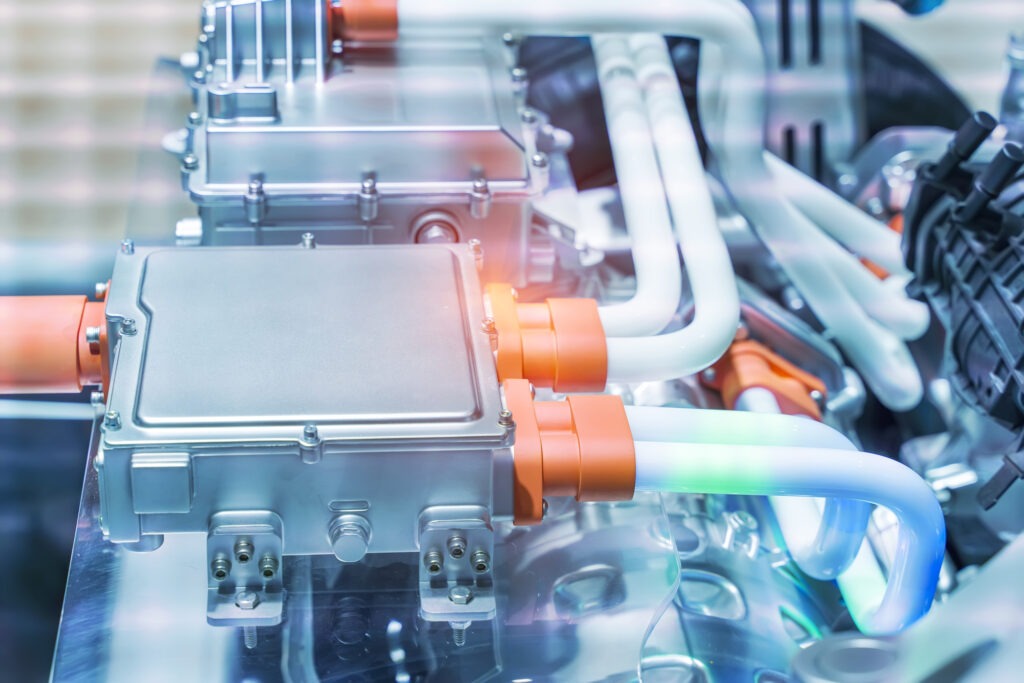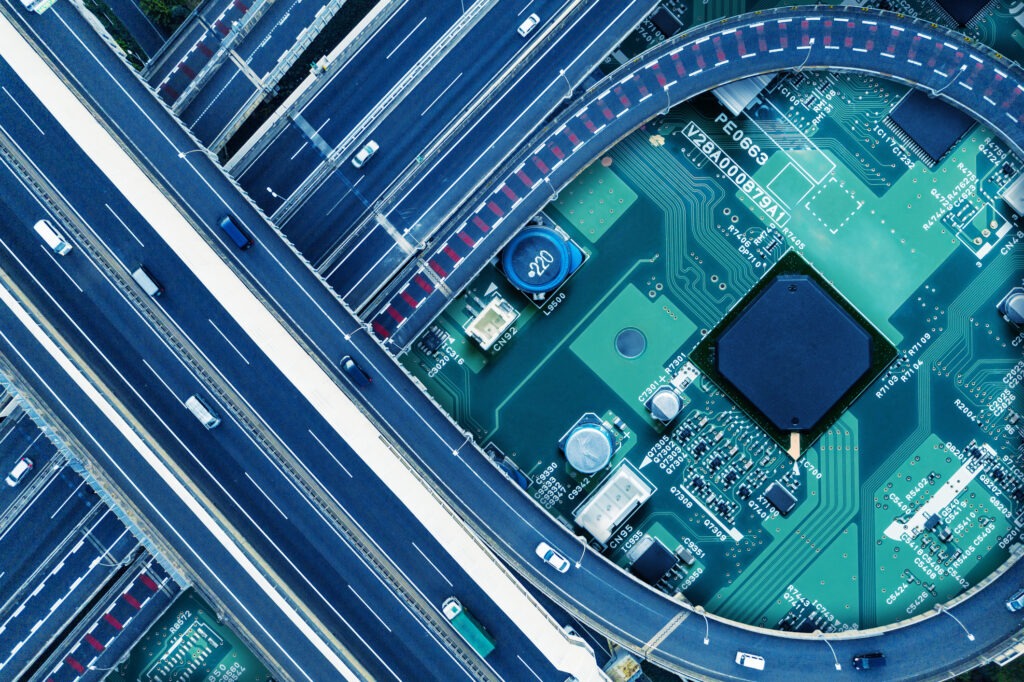Europe hits gigafactory milestones but UK risks falling behind in EV battery race
23 May 2023

The EU is eager to secure local and sustainable supply chains for electric-vehicle (EV) batteries, attempting to draw more manufacturers to the continent. But the building of a European battery industry is facing increased global competition.
Recent months have seen a battery race between North America and Europe, with both regions intent on establishing key electromobility hubs. The US is luring international companies by offering enticing incentives for green technologies under the Inflation Reduction Act (IRA). The EU is trying, to follow suit by relaxing state aid rules on subsidies, and recently secured two major deals that will supply units to European car manufacturers.
Back on track?
Northvolt, one of Europe’s major battery makers, is back on track to build a gigafactory in Germany. The country is a hotspot for EV technology, with leading brands such as Tesla operating a manufacturing site there. The world’s largest battery producer, China-based CATL, has also grown its presence in the country, underlining Germany’s appeal to international players as a strategic automotive market.
Northvolt’s gigafactory plans were in limbo for months after the company’s CEO suggested that the Swedish startup could prioritise its expansion in the US. Funding played a major role, with green NGO Transport and Environment (T&E) warning that battery manufacturers could increasingly turn their attention to the US.
The organisation cautioned that 68% of lithium-ion battery production planned for Europe could be at risk of being delayed or scrapped if the EU does not pledge more financial support for the battery industry.
Against this backdrop, Northvolt’s recent announcement can be seen as a major milestone for Europe. The battery maker’s annual production volume in Germany will be 60GWh, supplying around one million EVs with sustainable battery cells.

‘With the next steps regarding Northvolt, Germany can look forward to one of the most significant lighthouse projects of the energy and transport transition, which will create thousands of green tech jobs,’ said Germany’s economy minister, Robert Habeck.
‘We have been in negotiations with Northvolt for almost one year. We are in the process of setting up the next steps such as the necessary notification process with the European Commission,’ he added.
The country has promised financial support, which it says will unlock a multi-billion Euro investment. At this stage, the planned state aid is still awaiting approval by the EU Commission. If everything goes to plan, Northvolt’s German gigafactory will start delivering battery cells made in 2026.
Funding battery projects
In neighbouring France, president Emmanuel Macron has clear ambitions to support the country’s self-reliance, not least in the EV battery sector. While Asian companies largely dominate the global battery market, that does not stop EU politicians from wooing them.
Taiwan’s ProLogium is planning to build a new battery plant in Dunkirk, and Macron met with the company’s CEO early on in his eagerness to beat competitors. The site will be ProLogium’s first solid-state battery manufacturing facility outside of its domestic market.
‘We were competing with the entire world, and you chose France and Dunkirk,’ said Macron, in an address. ‘You trust in a country and an industrial site over the long term, and so we will be committed to meet the deadlines, the financing and everything that will enable you to succeed over the long term.’
France is turning into a frontrunner in Europe’s green automotive manufacturing landscape, currently planning to introduce green measures and tax credits to attract large investments. ProLogium will invest €5.2 billion to set up the 48GWh gigafactory, as well as an R&D centre.
The company picked Dunkirk out of a list of over 90 cities, citing low-carbon electricity at competitive prices as a major benefit. The gigafactory will create 3,000 direct jobs by 2030 and like Northvolt’s plant, it is due to start production in 2026.
Wider European investment
Forced into action after the COVID-19 pandemic and the Ukraine war, Europe is doing more to fund battery projects to boost investment in green technologies. There have been around 50 gigafactory announcements in Europe so far and state aid is of growing significance.
The European Commission just approved an €837 million package to bolster EV battery production in Spain under EU state aid rules. The Commission said the Spanish scheme is ‘necessary, appropriate and proportionate’ to accelerate the green transition.
Volkswagen (VW) Group is planning to set up Spain’s first gigafactory in the hope of turning the country into a European electromobility hub. The site will have an annual production capacity of 40GWh, with the first battery cells expected to be delivered in 2026.
UK falling behind battery race
While the EU and the US push ahead with EV-battery plans, the UK appears to be falling behind in terms of EV battery developments. Members of the country’s Parliament have been warned that the future of the British automotive sector is at risk as it has not developed an EV battery industry.
The recent collapse of startup Britishvolt has drawn attention to the uncertain conditions surrounding EV battery manufacturing in the country. Experts have long voiced concern that the UK government needs to spring into action and help build up domestic battery manufacturing.
The British automotive industry employs around 182,000 people in manufacturing alone, with the sector accounting for 10% of total exports. Around 25 manufacturers currently build 70 models in the country, according to the Society of Motor Manufacturers and Traders (SMMT).
British ministers are hoping JLR will build an EV battery plant in the UK, as without a battery manufacturing industry, the outlook in the UK would be dim. It could cause serious harm to the car industry, especially as EVs are booming. The UK is also phasing out the sale of new internal-combustion engine (ICE) models by 2030, five years before the EU plans to do so, highlighting the urgency in developing a strategy to address concerns.
A group of experts urged the UK government to develop a strategy and offer more financial support to the battery sector to keep up with international competition. In an address to the Parliament’s Business and Trade Committee, its members were told that the UK is a bystander in the global battery arms race.
Simon Moores, chief executive at Benchmark Mineral Intelligence, said the UK can catch up but was already far behind in the global battery race.
‘We are seeing the US really push ahead with battery plants and the supply chains to fuel them. The UK does not have a strategy, does not have a runner in this race. Unless you are making batteries here, unless you have got the chemical plants to fuel those batteries […] you are not involved in this energy storage revolution,’ Moores said.
He urged the government to act in time for the 2030 ICE ban. A strategy is needed now, he added, to help with funding and attract players as building up a supply chain is going to take the rest of the decade.
Jeremy Wrathall, founder of Cornish Lithium, reiterated this message, saying the subsidies in the US will attract capital to North America, rather than to the UK. Meanwhile, Stephen Gifford, chief economist at the Faraday Institution, highlighted that the UK needs 10 gigafactories, and five of them by 2030 – if JLR decides to build a gigafactory in England, it would be a major win.
The economic volatility of the past few years has shown that Europe and the US are increasingly securing raw materials to build up a sustainable supply chain to grow a local EV battery industry. With competition from Asia remaining fierce, falling behind is no longer an option.



